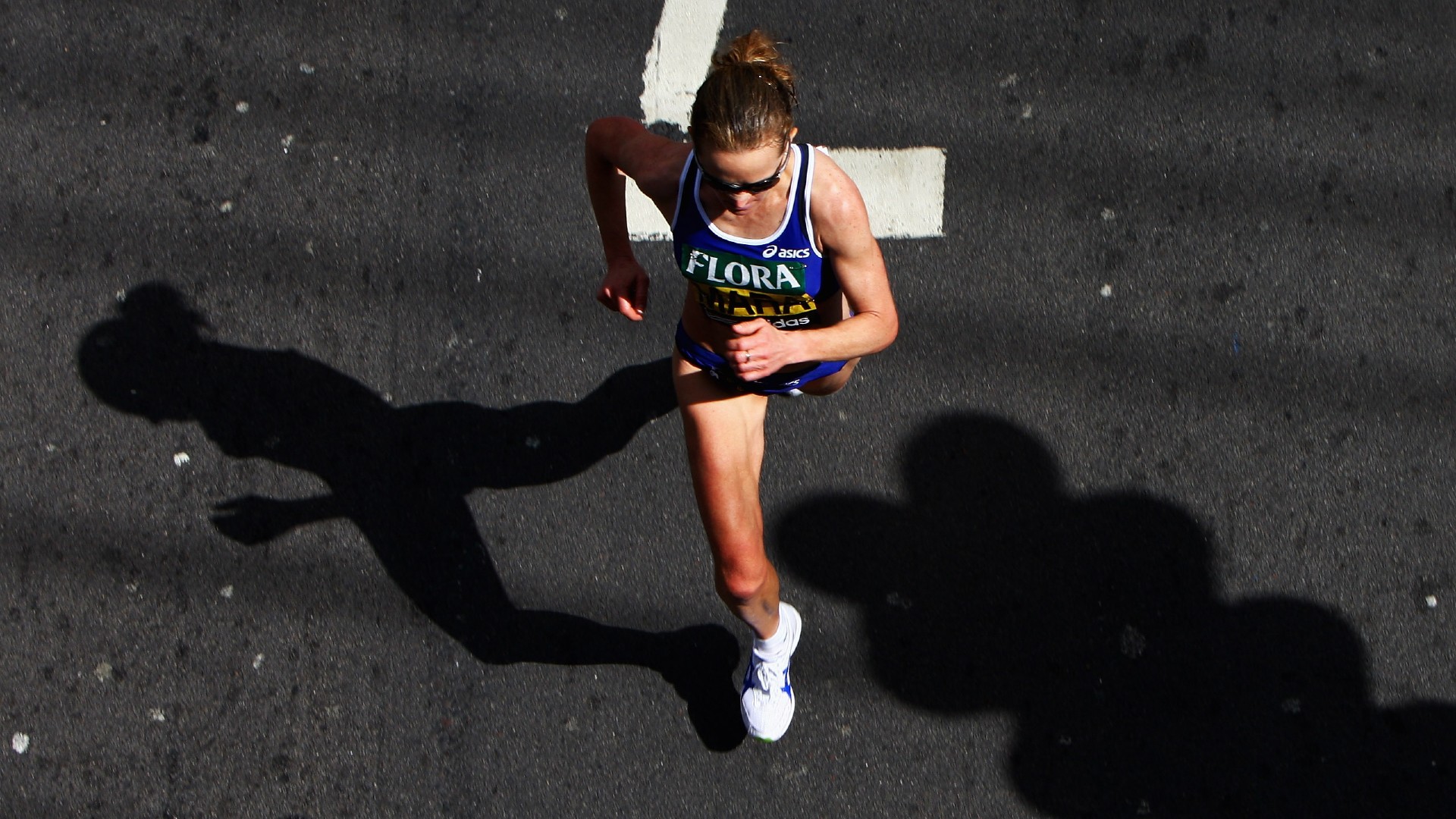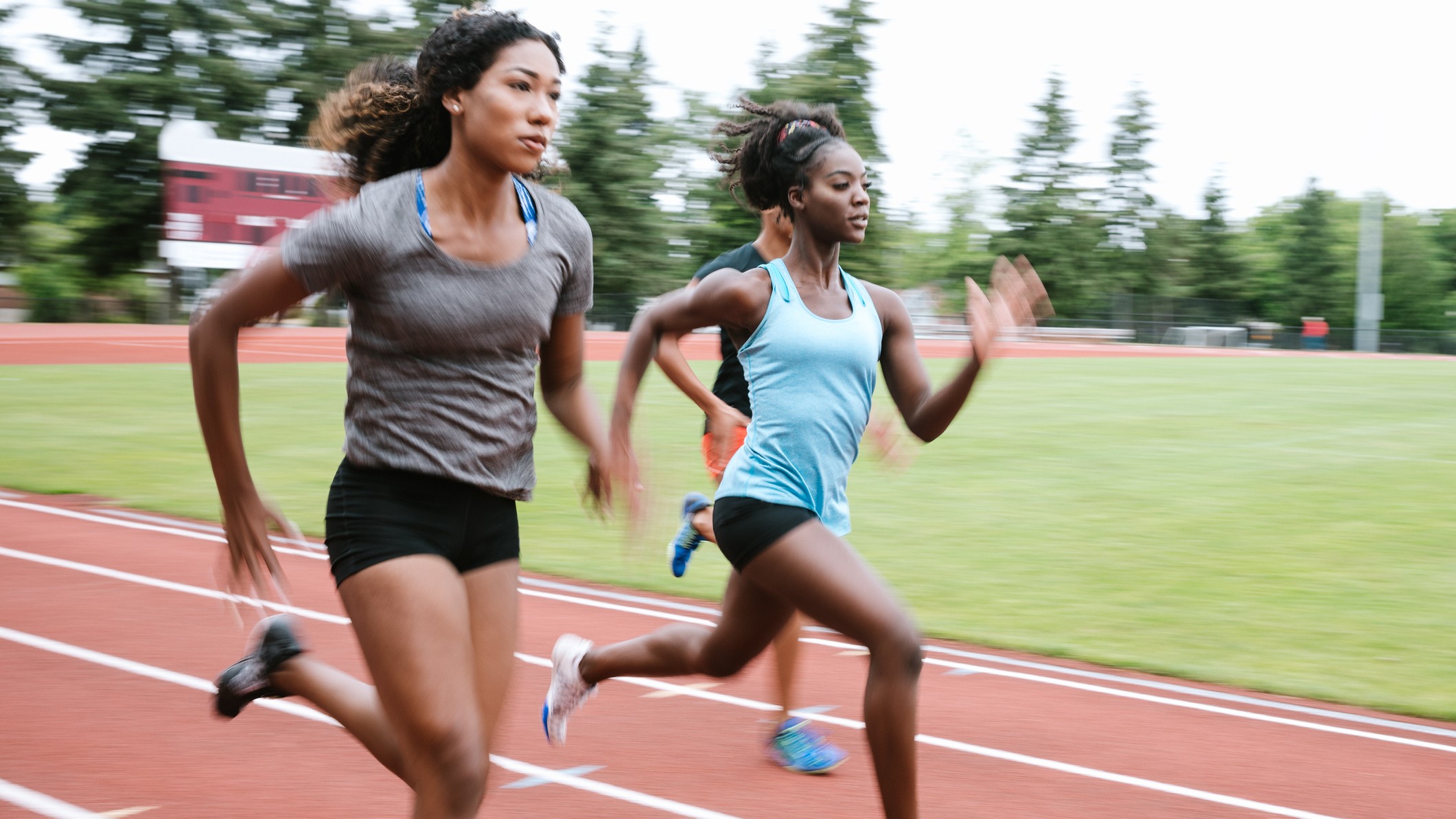How To Run Faster: Tried-And-Tested Advice From An Elite Athlete
Whatever level of runner you are, getting faster starts with nailing the basics

There is, unfortunately, no magic trick that will make you run faster. As with almost everything, it takes time and diligent practice to get better at running. It also requires a considered approach to make sure the work you’re putting in is productive.
Mara Yamauchi knows a lot about running fast. Yamauchi finished sixth in the marathon at the Beijing Olympics, and is the third-fastest female British marathon runner of all time.
Yamauchi has shared her insights into running in her new book Marathon Wisdom: An Elite Athlete’s Insights On Running And Life, which covers training, nutrition, mental preparation and much more.
We spoke to Yamauchi to gain some first-hand knowledge on how to run faster.
What is the key to getting faster?
The key to running faster is to train with a quality and quantity appropriate to your level, and do that consistently, without interruption or injury. If you do that, then you should get faster.
When you run you do microdamage to your body. Then when you’re resting after running, your body adapts in response to that stimulus. That process gets repeated and over time you improve. The process is called supercompensation. So the key for any runner, from a complete beginner all the way up to an elite athlete, is to get on that cycle of supercompensation.
If you’re a beginner, start running maybe two to three times a week, or mixing up walking and running, to avoid injury and allow your body time to adapt. If you’re an experienced elite athlete, it might mean training 14 times a week or more.
Sign up for workout ideas, training advice, reviews of the latest gear and more.
Find a routine which suits you, and triggers adaptation and improvement. Then just keep doing more of the same. Don’t tweak things in an effort to improve more rapidly, because you might find that you end up getting worse.
What if you find you’re not improving any more?
If you have been improving and then plateau, what that tells you is that the cycle of supercompensation had been working but now isn’t.
In that scenario, it’s a good idea to look at what you’re doing and what’s not quite right. Is your training too little or too much? Or perhaps it’s the right amount, but not the correct type of training for the event you’re targeting?
Do an audit of your running and your non-running activities. It’s easy to just focus on training, but it could also be something to do with the adaptation. The obvious things are nutrition and hydration, rest, and sleep. If you’re sleeping badly, you might be doing really good training but not adapting in between training sessions. If your work is very stressful and you’ve got a lot of stress hormones circulating, that may be stopping good adaptation. Or lots of long-haul travel and jet lag – that might be causing poor sleep, and therefore you’re not adapting.
Why is it important to do different kinds of runs to improve?
Different types of runs serve different purposes. For example, an easy jog might help you recover from a harder session, or add to the volume of miles you’re running and that helps with your running economy in the longer term, so it makes you more efficient.
At the other end, a track session of very short, very fast intervals will help you to develop tolerance to high levels of lactic acid. It will improve your leg turnover – your form at very fast speeds.

The long run will develop muscular endurance. It will help your body to adapt to fuel depletion because you’ll burn off fuel as you’re running.
Running hills is an anaerobic type of training if you do it fast, but it’s also a form of strength training, because you need to produce more power than when you’re running on the flat.
All these different types of runs tick different boxes. If you’re training for a marathon, long runs will be really important, whereas if you’re training for the 800 metres you need to be doing a lot of fast running, developing your tolerance to lactic acid. What you do and when should be determined by your overall goal.
Do you have any nutrition advice for people looking to run faster?
I should say that I’m not a qualified dietitian or nutritionist, and what I know about nutrition is purely from having been an elite athlete. For me, the most important thing is variety in what you’re eating. Try to eat a really wide variety of foods, including highly nutritious foods like oily fish, green leafy vegetables, nuts and seeds – all that kind of stuff. That’s how you will get all the different nutrients that you need to just stay healthy and adapt to running.
Then if you’re doing a lot of training, if you’re training for a marathon for example, eating enough calories to fuel your training is obviously really important.
After any hard training, so that means any fast training or long training, I would try to eat or drink something which has protein and carbohydrates in it within 20 minutes of finishing. That could be something like a recovery drink or smoothie that you’ve made yourself. Something like milk is good because it has protein and carbohydrates in it. It means your recovery will start quickly, pretty much as soon as you finish running.
- Use Laura Muir’s recovery smoothie recipe to refuel after your toughest runs
Another tip is to have a proper meal reasonably soon after any kind of serious training. That’s sometimes not easy in practical terms, but as far as possible, try and have a proper meal. That really applies in the evening. If you train in the evening and then you don’t eat properly, or don’t replenish what you’ve burned before you go to sleep, you’ll wake up the following morning and your recovery will be delayed.
Are there any other things you can do to promote recovery?
I used ice baths after very intense training sessions. I know that there’s mixed evidence on the usefulness of ice baths, but personally, I found it really helped to dampen down the inflammation and discomfort in my legs after a hard session. I also used compression socks after hard sessions just to help with the circulation in my legs. Rest and sleep are obviously very important. Very simple, but very important.
Your activity also will have a big effect. If you do a big long run on a Sunday morning and then you spend the day out hiking, seeing friends or shopping or something, then you’re going to be more tired than if you spend it at home putting your feet up.
Then there’s stuff like compression boots and all the gadgets out there. I didn’t really use gadgets that much for recovery. I’m sure some of them are useful, but I just haven’t personally tried them very much. I think if you’re going to use any kind of gadgets, it’s worth making sure you’re doing your very best on the simple things first. The gadgets should be seen as the icing on the cake in terms of recovery.
Do you have any elite-level race day advice to help people get faster?
Your mental preparation is really key. What I mean by that is being mentally rested and fresh when you go to the start line. If you’re feeling jaded or stale, or tired from work, or just not quite mentally up for racing, then that definitely affects your performance. I always tried to have easy days before races so I felt mentally raring to go on the start line.
I would also always recce the course for marathons and even for shorter races, because that made the course feel familiar. I knew when any corners or uneven road surfaces were coming up so I was ready for it.
And be really organised: wear in your kit in advance, wear in your shoes in advance, make sure you know what the start procedures are. Think about how you’re going to travel to and from a race, because at a big event there will be road closures. Being really on top of practical things frees up your mind to focus on delivering a good performance.

Nick Harris-Fry is a journalist who has been covering health and fitness since 2015. Nick is an avid runner, covering 70-110km a week, which gives him ample opportunity to test a wide range of running shoes and running gear. He is also the chief tester for fitness trackers and running watches, treadmills and exercise bikes, and workout headphones.
